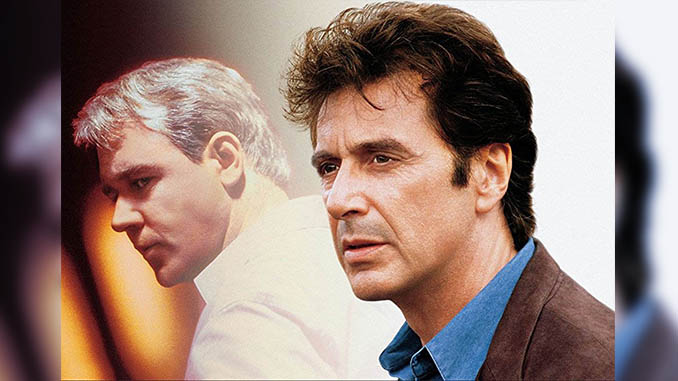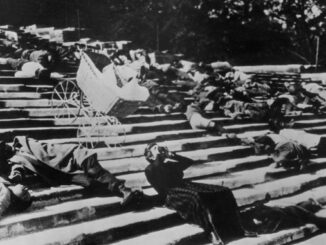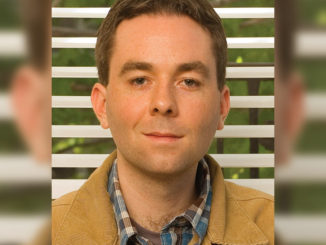
by Scott Essman
Tucked into a series of adjoining rooms in one of Universal Studios’ classic office complexes, the creative enterprise known as Sound Dogs is hard at work. Having just completed consecutive feature film projects including Disney’s Fantasia 2000, Greg King is configuring the sound effects for an upcoming animated feature, The Road to El Dorado. 1999 has shaped up to be quite a year for King and Sound Dogs which he operates with partner Bob Grieve. Among his other major credits of the year, King created the myriad sounds for Michael Mann’s The Insider.
Starting work in sound in 1986, King’s first passion was music. “I got started doing sound in Toronto,” he said, “playing in bands, traveling around, and doing demos in studios.” Eventually, King drifted into sound recording and engineering, then honed his craft while working on numerous film and TV projects. “I used to work out of a place called Film House which is now Deluxe Lab,” King said. “That is a good-sized sound facility – five or six mixing theaters and lots of sound editorial rooms, so that is where we all got our chops.”
In 1994, King moved to Los Angeles and gained a foothold, leading to his forming Sound Dogs – a facility that now has 140 thousand sound effects stored on a 120 gigabyte hard drive. “All my editorial computers tie into that server,” explained King, ” so whenever I am working on my Pro Tools, I can browse through the server to select a sound for usage in a movie.”
Despite a steady stream of offers, King finds that keeping Sound Dogs a small streamlined outfit is his best plan of action. “I find that working with a small crew who are on the movie for the whole length of time is ideal,” he noted. “I’ve got one other effects editor, Yann Delpuech, a dialogue editor, Darren King, and a Foley supervisor, John Murray. They get to know the clients, the director, the editors, and the movie intimately because everyone’s on the movie for a long time.”
“Michael Mann was extremely hands on and makes a lot of editorial changes, which affect the whole sync of the movie.” – Greg King
On The Insider, in addition to King’s compilation of the extensive sound effects editing, he spent roughly three and a half months dubbing the film in the spring of 1999. “The pre-dubs on the show, including all of the dialogue – edited by Greg Baxter- and effects, were completed in about three weeks,” King said. “The rest of that time period was all final dubbing.”
Working with Michael Mann proved a most unorthodox experience for King, one that provided a great deal of personal interaction with the director. “On most spotting sessions,” King related, “when you meet with the director and the picture editor, they’ll say things like, ‘these guns have to sound great, or make sure the traffic here is really busy, and make sure we have Foley of this person walking in because I want to make sure they go off screen.’ But Michael would merely explain what his intent of the scene was – why he looked at a scene in a certain way, used various colors in the set direction, used particular cameras lenses, shot in these angles and edited the scene in specific ways. Having done that with him, I’d work toward his vision with no predetermined barriers.”
Armed with Mann’s constant flow of detailed notes, King would interpret them and get the chance to flex his creative muscles to develop the sound concepts for the film. “It really made me feel involved in the process in a very big way,” King stated. “He hasn’t told me what specific sounds to use; he’s told me what the intent of the scene is and now I’ve got to hope I’m successful in pulling out what he is looking for. Initially, I showed him stuff as soon as I had it completed, and since Michael was feeling comfortable, he didn’t interact too much during the editorial process. Then, when we got to dubbing, I was interacting with him an enormous amount. On this movie, because of the way Michael works, dubbing was a considerably longer part of the process in relation to the length of the pre-dubbing period on most movies. ”
“I find that working with a small crew who are on the movie for the whole length of time is ideal.” – Greg King
As Mann actually mixed a large chunk of the music on The Insider, serving as one of the three re-recording mixers at the soundboard, King received firsthand knowledge of the director’s propensity towards total immersion in his films. “Michael was extremely hands on and makes a lot of editorial changes,” said King, “which affect the whole sync of the movie. Three days will go by and Michael will want to try a slightly different dramatic approach, so we will re-mix those reels with a different music mix, music cues, and levels in the dialogue. Eventually, after doing that for months on the dub stages, we got the movie to the version that is now in theaters!”
As far as a personal preference, King revealed his love for the early stages of the sound editing process. “I think the most exciting part is dreaming it all up,” King noted. “During the last five weeks, Michael made sure I got involved in the final mix, so that was also very exciting. When I get to do that combination, that’s the most fun for me. On most movies, it’s all about being in my room, making sounds which complement the story and the drama, going from an El Dorado to a Fantasia to a Michael Mann movie. I just hope to continue doing projects of this quality that are this diversified.”
With regards to Sound Dogs, King’s ultimate goal is to remain a modest operation. “I don’t want to become a factory or big corporation that turns out movies,” he reiterated. “I would like to remain a small shop with a few employees and work on movies the way we do now – with really tight crews where we all have our teeth into the movie.”





